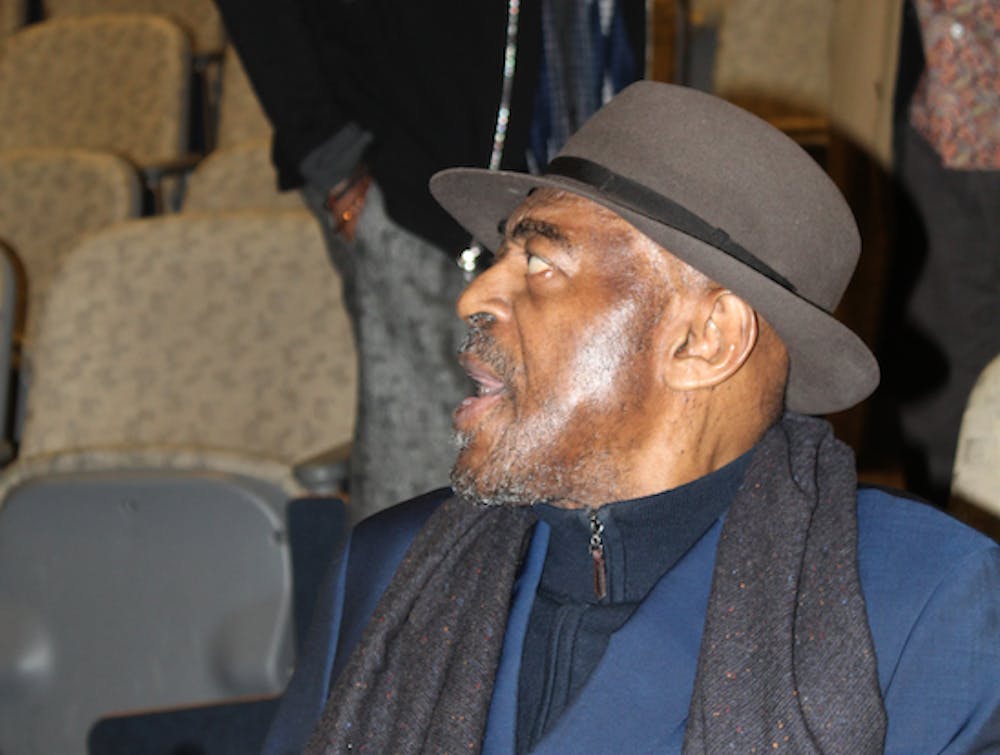The University held a free two-day symposium, “Paris/Algiers 1969: Declarations of Freedom by the Black American Avant-Garde,” on Friday, Nov. 15 and Saturday, Nov. 16. The Centre Louis Marin for Interdisciplinary French Studies organized the event with the support of the French Embassy in the United States, and the symposium director was none other than Hopkins Professor and Chair of German and Romance Languages and Literatures, Professor Derek Schilling.
It has been 50 years since the first Pan-African Festival in July 1969, which took place in Algiers.
The diverse gathering of over 30 representative groups from African nations and soon-to-be independent nations sparked global conversations. At the time, this event was an unprecedented moment of shared cultural celebration.
This year, the Friday sessions of the symposium took place at the Glass Pavilion of Levering Hall, featuring acclaimed scholars from various institutions and universities, including Professor Cae Joseph-Masséna from the University of Miami, Professor Sam Di Iorio from Hunter College and Professor Rashida K. Braggs from Williams College. The presentations focused on jazz critique in French cinema, the legacy of multi-instrumentalist vocalist Bobby Few and black feminism as heard through the voice of Jeanne Lee in Archie Shepp’s song “Blasé.”
Professor Daniel Desormeaux, the head of the French Subdivision at Hopkins, moderated an event titled “Critical Soundings II,” with subsequent presentations from Ben Young of Triple Point Records and Paul Steinbeck of Washington University in St. Louis.
Following a one-hour lunch break, Friday’s afternoon sessions continued in Mudd Hall 26, with the focus switching to an event titled “From Stage to Studio: The Musicians’ Perspective,” setting the stage, as described in the program, for a “roundtable discussion on performance culture, creative collaboration, and the venues that mattered in France at the close of the 1960s.” This portion of the symposium mainly focused on the history of the album Jazzactuel, released under the French jazz record label, BYG Records, from 1969 to 1971.
By the early evening, Archie Shepp, a central figure in mid-century avant-garde jazz, made his guest appearance. He called out from the back of the audience as Dave Burrell recalled the legacy of his late mother and her musical influence.
The Saturday sessions were held in Remsen Hall 101, delving into Algiers and the Pan-African revolution in the context of the unforgettable month of July 1969. Under the direction of Professor Todd Shepard and Professor Lawrence Jackson from the University’s History department, these formal presentations focused on transatlantic solidarities, as witnessed through the contributions of key figures like William Gardner Smith, Richard Gibson, Angela Davis, Frances Beal and Ted Joans.
The afternoon sessions then turned into a conversation with distinguished journalist, translator and author Elaine Mokhtefi, who had covered and helped organize the Pan-African Festival. Mokhtefi read a few passages from her memoir, Algiers, Third World Capital, an autobiographical account of her involvement with the Algerian Revolution and active participation in the post-revolution efforts to further emancipate Algeria from France. Written with poignant clarity in Mokhtefi’s unique and honest voice, the book chillingly came to life as Mokhtefi read her own written words aloud.
On Mokhtefi’s contributions to the liberation of Algeria, moderator Adam Shatz, contributor to many renowned publications and editor at the London Review of Books, explained the existential struggle that many Algerians faced before Algerian independence.
“[Algerians] see themselves as growing up in a country which is still tied in all sorts of perverse ways to France, still afflicted, still governed by this corrupt political, financial mafia and still deprived of a truthful knowledge of their own history… [Elaine’s] book is revealing a world to them that they have been cut off from. That’s another reason her book has such an impact to Algerians,” he said.
As the symposium continued, Dave Burrell, Archie Shepp and Grachan Moncur III — the free jazz artists who performed at the Pan-African Festival of 1969 in Algeria — were joined by Brent Hayes Edwards, professor of English, Comparative Literature and Jazz Studies at Columbia University. They had a conversation about their experiences as participatory figures at the historic event.
Suddenly, in an almost surreal turn of events, the three musicians were reunited with Alan Silva, another member of the free jazz band that performed at the festival. Everyone in the audience sat at the edge of their seats in an attempt to listen in on their impromptu and momentous reunion via FaceTime.
The ensuing conversation was light-hearted and nostalgic, before Archie Shepp provided more serious commentary on our current political climate, the lingering repercussions of colonialism and the prejudices that still exist in America today.
The two-day symposium was far-reaching, consequential and intellectually stimulating, and shone a light on a time period in history of which I had little prior knowledge and which speaks to the significance of reviving a moment of history that lives on in our minds — and in our ears.
Katy Oh contributed reporting





